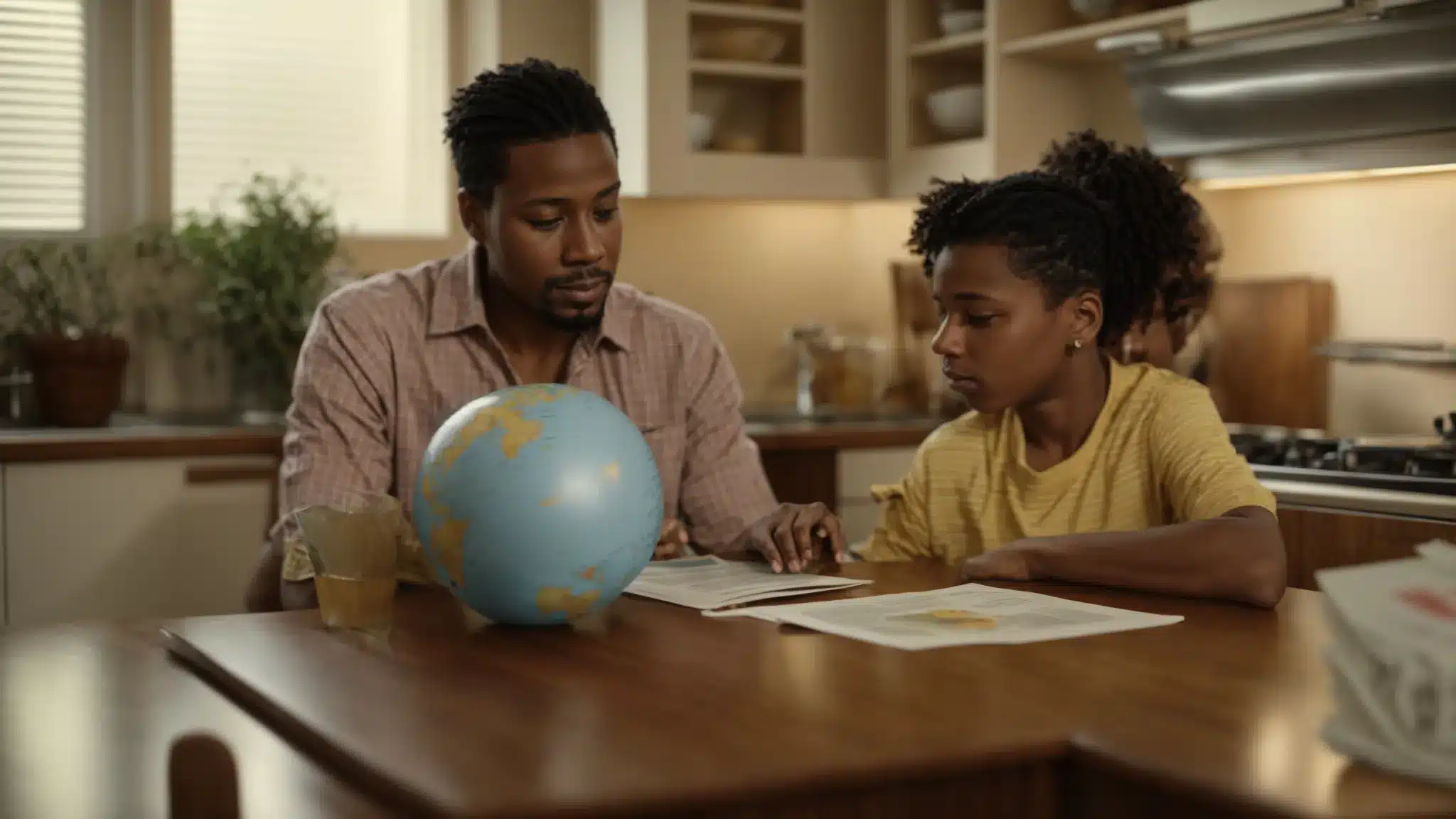5 Min Read
How to Talk to Kids About Election Anxiety
Election seasons often bring a whirlwind of emotions and stress, affecting not just adults but children too. Kids, though less involved in the political process, can pick up on the anxiety and tension that elections bring. Addressing election anxiety through smart parenting with children is crucial for their mental health and emotional well-being. WithTherapy, a unique therapist search platform, offers valuable insights into child and adolescent mental health, helping families navigate these stressful times.

Understanding Election Anxiety in Children
Recognizing Signs and Symptoms
Children may exhibit various signs and symptoms of anxiety during election seasons. These can include worry, physical symptoms like headaches or stomachaches, emotional distress, and changes in behavior. For instance, a child might become more clingy, have trouble sleeping, or show irritability. Understanding these signs is the first step in supporting your child’s mental health.
Why Children Experience Election Anxiety
Children perceive political events differently than adults. They often hear snippets of conversations or catch alarming news segments, leading to confusion and fear. The constant media coverage and adult discussions about elections can amplify their anxiety, making it essential to address their concerns directly. Children are also highly perceptive and can sense the stress and worry their parents may feel during election times.
Strategies for Talking to Kids About Election Anxiety
Open Communication
Creating a safe space for your child to express their feelings is vital. Start by asking open-ended questions about what they’ve heard or how they feel about the election. Use age-appropriate language to ensure they understand and feel comfortable sharing their thoughts. For example, you might say, “I noticed you seemed upset after watching the news. Do you want to talk about it?”
Providing Reassurance
Children need reassurance about their safety and the stability of their environment. Emphasize that while elections are important, their immediate world—family, friends, and community—remains stable and supportive, regardless of the outcome. Reassure them that adults are working to ensure everyone’s safety and well-being.
Encouraging Questions
Encourage your child to ask questions about what they see and hear. Providing clear, honest, and age-appropriate answers helps demystify the election process and reduces their anxiety. It’s okay to admit when you don’t know the answer and to suggest looking it up together. This approach not only provides accurate information but also models problem-solving skills.
Limiting Media Exposure
Media exposure can heighten anxiety in children. Set healthy boundaries around news consumption and be mindful of the information they are exposed to. Curate appropriate content for their age and understanding, and take breaks from constant news updates. Encourage activities that do not involve screens, such as reading books, playing outside, or engaging in creative hobbies.
Supporting Children’s Mental Health
Promoting Healthy Coping Mechanisms
Introduce activities that help your child manage stress, such as physical exercise, creative hobbies, and mindfulness practices. Simple meditation techniques or breathing exercises can be very effective in reducing anxiety. For example, you can teach your child a simple breathing exercise: “Breathe in deeply through your nose for a count of four, hold for four, and then exhale slowly through your mouth for a count of four.”
Modeling Positive Behavior
Children often emulate their parents’ behavior. You can teach your child effective stress management and resilience by modeling calm and positive behavior during stressful times. Show them how you handle your anxiety and use coping strategies, like taking deep breaths, managing your anger, practicing meditation, stopping yourself if you’re doomscrolling, or engaging in a relaxing activity. Children who see their parents managing stress healthily are likelier to adopt similar behaviors.

Find a Therapist To Help With Election Anxiety
Get personalized matchesSeeking Professional Support
If your child’s anxiety becomes severe, it may be time to seek help from a mental health professional. Several therapy options are available that are particularly effective for children and teens:
Play Therapy
Play therapy allows children to express their emotions through play, which can be less intimidating than talking. This therapy is especially beneficial for younger children who may not have the verbal skills to articulate their feelings. Through play, therapists can observe children’s behaviors and interactions, helping to identify sources of anxiety and teaching children how to cope in a safe environment.
Cognitive Behavioral Therapy (CBT)
Cognitive Behavioral Therapy (CBT) is highly effective for children and teens dealing with anxiety. CBT helps them understand and manage their anxiety by changing negative thought patterns. It teaches practical skills to cope with stress and anxiety, such as recognizing and challenging irrational fears and replacing them with more positive thoughts. CBT can be tailored to different age groups, ensuring developmentally appropriate strategies.
Psychodynamic Psychotherapy
Psychodynamic therapy focuses on understanding the underlying psychological roots of a child’s anxiety. This psychotherapy explores the influence of past experiences and unconscious processes on current behavior. For older children and teens, psychodynamic therapy can provide deep insights into their emotions and help them develop healthier ways of relating to themselves and others.
Group Therapy
Group therapy allows children and teens to share their experiences with peers facing similar challenges. This setting can be particularly comforting as it reduces the feeling of isolation. Group therapy also promotes social skills, empathy, and peer support, which are crucial for emotional development.
Family Therapy
Family therapy involves working with the entire family to improve communication and resolve conflicts that may contribute to a child’s anxiety. This therapy recognizes that a child’s anxiety often affects and is affected by family dynamics. By addressing these issues collectively, families can create a more supportive and understanding home environment.
Art Therapy
Art therapy allows children to express themselves through creative activities like drawing, painting, and sculpting. This form of therapy can be particularly effective for children who find it difficult to verbalize their feelings. Art therapy provides a safe outlet for emotions and can help children process their thoughts in a non-threatening way.
Reiterating the Importance of Support
Supporting your child through election anxiety involves open communication, reassurance, and fostering a supportive environment. Encourage them to express their feelings, ask questions, and model positive coping behaviors. Prioritize their mental health, and don’t hesitate to seek professional support if needed.
Contact WithTherapy for Help
WithTherapy can help families manage election anxiety by connecting them with experienced therapists. If your child needs personalized support, search WithTherapy to find the right mental health professional.

Find a Therapist To Help With Election Anxiety
Get personalized matchesFAQs About Talking to Kids About Election Anxiety
1. What are some signs of election anxiety in children?
Common signs include increased worry, physical symptoms like headaches, emotional distress, and changes in behavior, such as irritability or clinginess.
2. How can I reassure my child about election anxiety?
Reassure them about their safety and the stability of their immediate environment. Emphasize the importance of family and community support.
3. Should I limit my child’s media exposure during election season?
Yes, limiting media exposure can help reduce anxiety. Set healthy boundaries and curate age-appropriate content.
4. When should I seek professional help for my child’s anxiety?
If your child’s anxiety is severe and impacting their daily life, seek help from a mental health professional. Therapies like CBT can be very effective.
5. How can WithTherapy assist in managing election anxiety?
WithTherapy connects families with experienced therapists who can provide personalized support to help manage election anxiety.
Find the Right Therapist For You




